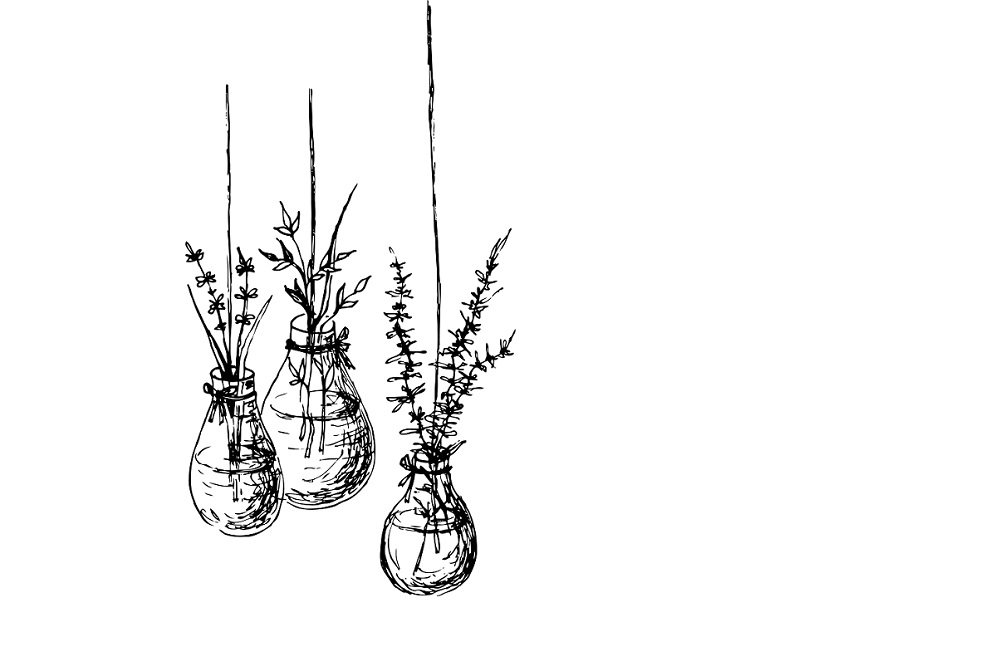
21 May Healing Homeopathic Herbs and Spices
Africa has an expansive pantry of fragrant and flavourful herbs and spices with wonderful healing properties. Not only do we want our food to taste good, we benefit from the homeopathic properties too. Though westernization has overtaken the use of natural remedies, there are number of powerful plants packed with restorative vitamins and minerals we can all use this winter season. Spice up your life and stay healthy this winter with a few organic suggestions -and if you want to do things your own way; consider growing your own kitchen garden. Read on to find some of our favourite healing homeopathic herbs and spices to assist during the winter chill…
HERBS:
Pelargonium
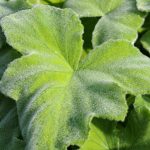 Used as a main ingredient in herbal cough and cold syrups, this local herb can also be eaten raw for the same medicinal qualities. Pelargonium is believed to fight upper respiratory tract infections (including the common cold, bronchitis and strep throat). The healing herb also works to soothe dysentery-related diarrhea.
Used as a main ingredient in herbal cough and cold syrups, this local herb can also be eaten raw for the same medicinal qualities. Pelargonium is believed to fight upper respiratory tract infections (including the common cold, bronchitis and strep throat). The healing herb also works to soothe dysentery-related diarrhea.
Don’t be heavy-handed with this powerful plant, an excess of pelargonium can cause nausea, heartburn and liver damage. One bud, taken orally, is enough to tide you over for a few days.
Balderjan
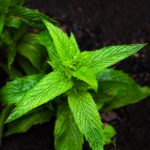 Grown in Lesotho, this spear looking herb has a strong mint taste and scent. It’s fairly easy to grow as all it needs is access to a generous water source and a healthy dose of sunlight. Belderjan (or Wild Horse Mint) leaves are used to make a tea that is drunk for coughs, colds, stomach cramps, asthma, flatulence, indigestion and headaches. You can also apply the plant to shallow wounds and swollen glands.
Grown in Lesotho, this spear looking herb has a strong mint taste and scent. It’s fairly easy to grow as all it needs is access to a generous water source and a healthy dose of sunlight. Belderjan (or Wild Horse Mint) leaves are used to make a tea that is drunk for coughs, colds, stomach cramps, asthma, flatulence, indigestion and headaches. You can also apply the plant to shallow wounds and swollen glands.
African Blue Basil
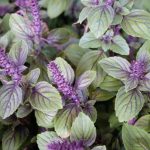 This aromatic herb, which is part of the mint family, is a personal favorite. Growing all across East Africa, this delicious herb thrives in Uganda. Basil is known to be an anti-inflammatory, anti-bacterial and an effective stress reliever and disease combater. Perfect for winter, add a few leaves to your favourite pasta dish for help fight flu and boost your immune system. In studies, basil extract is even shown to be helpful in killing bacteria that don’t respond to antibiotic treatments.
This aromatic herb, which is part of the mint family, is a personal favorite. Growing all across East Africa, this delicious herb thrives in Uganda. Basil is known to be an anti-inflammatory, anti-bacterial and an effective stress reliever and disease combater. Perfect for winter, add a few leaves to your favourite pasta dish for help fight flu and boost your immune system. In studies, basil extract is even shown to be helpful in killing bacteria that don’t respond to antibiotic treatments.
Garlic
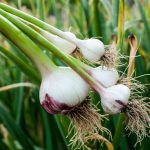 Your dinner date won’t appreciate this medicinal clove as much as your body does, but pay no mind to that. Garlic is a welcomed addition to so many dishes because it taste amazing and it’s really good for you. This pungent plant is packed with Manganese, Vitamin B6, Vitamin C and Fiber. You’ll also get a healthy dose of calcium, copper, potassium, iron and Vitamin B1 too. Garlic will combat the common cold, regulate your blood pressure, improve your cholesterol levels and lower the risk of heart disease. I often knock back a teaspoon of crushed garlic on its own, but your palate might appreciate it sprinkled across pizza or added to a stew instead.
Your dinner date won’t appreciate this medicinal clove as much as your body does, but pay no mind to that. Garlic is a welcomed addition to so many dishes because it taste amazing and it’s really good for you. This pungent plant is packed with Manganese, Vitamin B6, Vitamin C and Fiber. You’ll also get a healthy dose of calcium, copper, potassium, iron and Vitamin B1 too. Garlic will combat the common cold, regulate your blood pressure, improve your cholesterol levels and lower the risk of heart disease. I often knock back a teaspoon of crushed garlic on its own, but your palate might appreciate it sprinkled across pizza or added to a stew instead.
Rosemary
 South Africa is a botanical buffet. Some of the most healing herbs grow along the west coast of the country, and Rosemary is one of them. Once considered a sacred plant by Egyptians, this herb goes great with baby potatoes or a medium-rare rack of lamb. It’s been used for thousands of years to improve memory, soothe digestive uses. relieve muscle aches and pain and detox your liver.
South Africa is a botanical buffet. Some of the most healing herbs grow along the west coast of the country, and Rosemary is one of them. Once considered a sacred plant by Egyptians, this herb goes great with baby potatoes or a medium-rare rack of lamb. It’s been used for thousands of years to improve memory, soothe digestive uses. relieve muscle aches and pain and detox your liver.
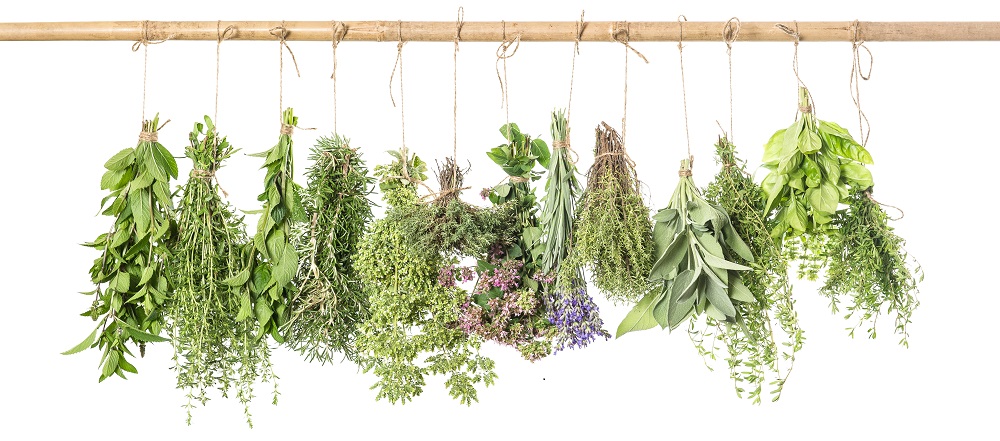
SPICES:
Turmeric
What doesn’t turmeric do? This spice is a powerful anti-inflammatory, preventing blood clots and alleviating intestinal irritations associated with Irritable Bowel Syndrome (IBS) and similar illnesses. Turmeric is a powerful antioxidant with immune boosting properties you’ll appreciate this winter. Add turmeric to your favourite curry or drink it as a tea if you just add boiling water and a pinch of black pepper to aid absorption. Otherwise try make your own delicious Golden Turmeric Immune Boosting Elixir. This canary-coloured spice reduces depression symptoms, boosts skin health and has proven to outperform many arthritis medication.
Cardamom
Cardamom is a super spice that regulates cholesterol, cardiovascular health and cancer-forming cells. It is effective in curing urinary tract infections such as cystitis and gonorrhea. You can also say goodbye to your issues in the bedroom, as this Ugandan spice combats impotence, erectile dysfunction and premature ejaculation. If that doesn’t convince you, add a pinch to your morning oats to improve dental health and fight depression.
Birds Eye Chili
One way to really clear your pipes of phlegm is with this Kenyan chili. One bud of birds eye chili contains Provitamin A, Vitamin C, Vitamin B1 and B2, calcium, phosphorus (helps strengthen bones and teeth), capsaicin (immune booster, pain reliever, treats psoriasis, manages diabetes and helps you lose weight), protein, iron and potassium.
Like anything, eat moderately as too much of this hot spice will raise the acid levels in your body, irritating your digestive system and stomach lining
Saffron
Considered a precious commodity in Morocco, this vibrant spice contains crocin which has proven to kill certain cancer cells in leukemia, ovarian carcinoma, colon adenocarcinoma, and soft tissue sarcoma. Saffron is extremely rich in manganese, which helps regulate blood sugar and aids the formation of bones, tissues, and sex hormones (it’s an aphrodisiac). Add a bit of saffron to warm milk and drink daily to improve your skin and immune system. Another way to utilise the benefits of this incredible spice is through topical application to your skin.
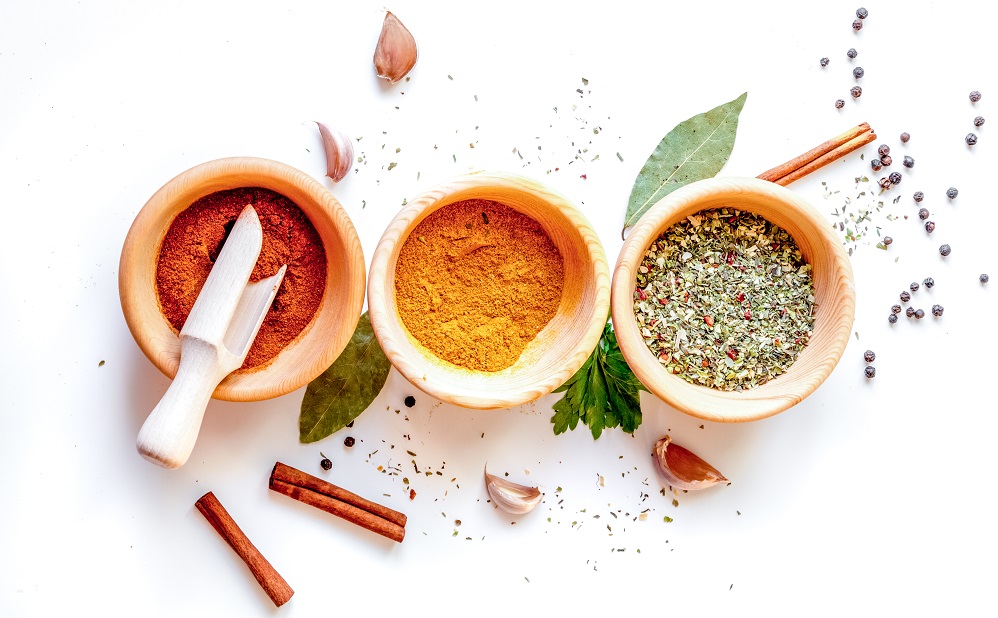



Sanyu Aida
Posted at 20:08h, 04 AugustThis is very good content, what is disappointing about this post is that it too short to do justice to all herbs mentioned here in and I believe if possible tackle each herb on it’s own with pictures. Other than garlic which is very common and found in shops that sell vegetables, the rest of the herbs are very rare. I would be pleased to see the pictures of the mentioned so that when I go looking for them I know exactly what I am looking for.
Thank you for the great article.
Chevaun Roux
Posted at 09:34h, 08 AugustHi Sanyu, thanks so much for this valuable comment. Moving forward we will absolutely aim to be even more visual in our content. Regarding this article – we will also go do some picture digging and include images to assist you on your hunt for the right herbs and spices.
Raja singh
Posted at 11:40h, 22 OctoberI came to your site and have analyzed your post. There are excellent details you posted here. I enjoyed reading your blog, and it is both instructional and enjoyable.
homeopathy doctors in Hyderabad
Posted at 13:36h, 04 JanuaryThanks to having your suggestions on this particular article. Hope you provide more info
Kathy lewis
Posted at 12:05h, 05 JuneMany thanks for a very informative article! I’m delighted to see you mention African Blue Basil. According to several websites, the plant is a hybrid and its seeds are infertile, so propagation is by cuttings. I’ve been trying to local plants in South Africa, so far unsuccessfully. Do you know where they are available?